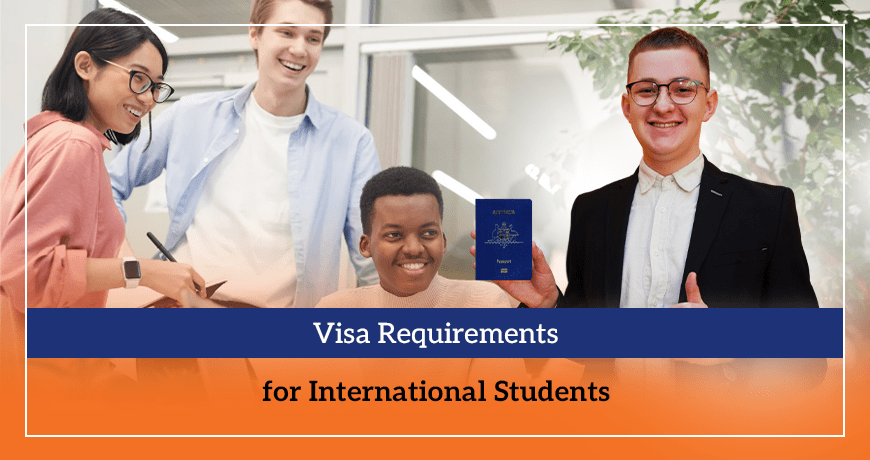Earning a master's degree in the UK can be a transformative experience, opening doors to exciting career opportunities and personal growth. However, for international students, the cost of tuition can be a significant hurdle. Affordable programs often attract a more comprehensive range of students worldwide.
A master's degree is an investment, and minimising tuition costs allows you to focus on your studies with less financial stress. It's essential for international students with additional expenses like travel and living costs. Let's dive deeper and explore the cheapest postgraduate courses in UK for international students.
The Landscape of Postgraduate Education in the UK
The UK boasts a long and prestigious history of postgraduate education. Universities like Oxford and Cambridge have offered master's degrees for centuries, attracting scholars worldwide. This tradition continues today, with UK universities consistently ranking high in global education rankings.
Master's programs in the UK typically last one to two years and offer focused study in a chosen field. They can be taught programs involving coursework and exams or research programs where you'll conduct original research under the guidance of a supervisor.
- Now, let's address the financial aspect. Master's program costs in the UK can vary significantly depending on several factors:
- Program Type: Master's degrees in science, technology, engineering, and mathematics (STEM) are generally more expensive than those in the arts and humanities.
- University Prestige: Tuition fees are often higher at top-ranked universities than at smaller institutions.
- Location: Programs in major cities like London generally cost more than those in smaller towns.
- Student Status: As mentioned earlier, international students often face higher tuition fees than domestic students.
The overall range can be pretty broad. Master's programs in the UK can cost anywhere from around £10,000 to over £40,000 per year.

Why the UK for Your Master’s Degree?
High-quality education and research opportunities
Universities in the UK are consistently ranked among the best in the world. You'll have the privilege of learning from renowned professors, accessing cutting-edge facilities, and potentially engaging in groundbreaking research alongside leading scholars in your chosen field.
This exposure to the forefront of academic inquiry can deepen your expertise and equip you with the critical thinking and research skills highly valued by employers.
International recognition of UK master's degrees
A UK master's degree carries immense weight on the international stage. Graduates from UK universities are well-respected by employers in different parts of the world, opening doors to exciting career opportunities. The rigorous academic standards and practical focus of many UK programs ensure you'll be well-prepared to hit the ground running in your chosen field.
Cultural diversity and inclusion
The UK is an excellent melting pot of cultures, attracting students from around the world. This diversity fosters a rich, inclusive learning environment beyond the classroom.
You'll be able to exchange ideas with people from vastly different backgrounds, develop valuable intercultural skills, and gain a broader global perspective. It enhances personal growth and prepares you to thrive in today's increasingly interconnected world.
Factors That Influence the Cost of a Master's Degree in the UK
Tuition Fees vs. Living Expenses
Tuition fees, the cost of instruction itself, are a significant expense, but certainly not the only one. There are other costs like accommodation, food, transportation, and course materials. These can vary depending on your lifestyle choices and the city you choose to live in. London, for example, will generally be more expensive than smaller towns.
Course Length and Type
The duration of your program directly affects the total cost. One-year master's programs are naturally cheaper than two-year programs. It might influence your decision, especially if you aim to minimise financial burden. Additionally, consider the program type.
Research programs may have additional costs associated with lab fees, materials, or specialised equipment compared to taught programs that primarily rely on lectures and coursework. Understanding these potential expenses upfront allows you to factor them into your budget and potentially choose a program that suits your financial resources.
Location
The city where your chosen university is located is vital in determining the overall cost. Major cities like London have higher living costs than smaller towns or rural areas. This difference can be substantial, so consider the location's impact on your budget.
For instance, a master's program in engineering at a prestigious university in London might be significantly more expensive than the same program at a well-respected university in a smaller city. While location can influence career prospects after graduation, focusing on affordable options in smaller cities can free up funds for other academic expenses or living costs.

How to Find Cheapest Master's Degrees in the UK
Utilizing academic search engines
Utilize online platforms like BHE Uni or UCAS. These resources allow you to filter programs by tuition fees, location, program type, such as taught vs research, and even starting dates. This targeted approach allows you to efficiently identify programs that align with your budget and academic goals.
Consulting university websites and admission offices
University websites are treasure troves of information. Look for dedicated postgraduate sections that detail program costs, scholarships, and funding opportunities specifically for international students. Don't hesitate to contact the university's admission office directly.
They can provide personalised guidance on program costs, application procedures, and potential financial aid options for which you might be eligible. Their insights can be precious in navigating the financial aspects of your master's degree journey.
Scholarships and financial aid options for international students
Scholarships and financial aid can reduce the financial burden of a UK master's degree. The universities themselves offer research scholarships, government bodies like the Department for Education, and private organisations related to your field of study.
Resources like the UK Council for International Student Affairs and the prestigious Chevening Scholarships are excellent starting points for your scholarship search. Remember, application deadlines can vary, so starting your research early is crucial to maximise your chances of securing funding.
Affordable Master’s Degrees in the UK for International Students (2025)
Business
1. University of Aberdeen - MSc International Management
- Focuses on international marketing, global finance, and cross-cultural management.
- Tuition: £11,500.
2. University of Strathclyde Business School - MSc Management
- Covers accounting, finance, marketing, and organisational behaviour.
- Tuition: £12,000.
Engineering
1. University of Derby - MSc Sustainable Engineering
- Teaches sustainable design and eco-friendly engineering practices.
- Tuition: £10,000.
2. University of East Anglia - MSc Renewable Energy Engineering
- Prepares students to design renewable energy systems.
- Tuition: £12,150.
Humanities
1. University of Glasgow - MSc International Human Resource Management
- Examines HR practices in global workplaces.
- Tuition: £10,300.
2. Queen Margaret University - MSc Creative Writing
- Develops writing skills and literary analysis.
- Tuition: £11,000.
Computer Science
1. University of Glasgow - MSc Information Technology
- Covers software engineering, data analytics, and cybersecurity.
- Tuition: £11,000.
2. University of Liverpool - MSc Computer Science
- Focuses on AI, machine learning, and software development.
- Tuition: £12,450.
Law
1. University of Leicester - LLM International Law
- Studies public international law, human rights, and criminal law.
- Tuition: £11,000.
2. University of Dundee - LLM Commercial Law
- Explores contract law, company law, and international trade law.
- Tuition: £12,200.
Social Sciences
1. University of Leicester - MSc Public Policy
- Analyses policy creation, implementation, and evaluation.
- Tuition: £11,000.
2. University of Lincoln - MSc International Development
- Addresses global development challenges and solutions.
- Tuition: £12,200.
Education
1. University of Edinburgh - MSc Education (TESOL)
- Trains students to teach English internationally.
- Tuition: £10,500.
2. Queen Margaret University - MSc Education (Leadership and Management)
- Builds leadership skills for educational administrators.
- Tuition: £11,700.
General Sciences
1. University of the Highlands and Islands - MSc Environmental Science
- Studies climate change, pollution control, and resource management.
- Tuition: £10,500.
Art and Design
1. Leeds Beckett University - MA Creative Practices
- Offers specialisations in fine art, graphic design, and fashion.
- Tuition: £12,000.
Language
1. University of Leeds - MA English Literature
- Examines literary genres and critical methods.
- Tuition: £11,800.

Eligibility Criteria and Application Process
Eligibility criteria and application procedures vary by university and program. Generally, you'll need a bachelor's degree in a relevant field and meet the minimum GPA requirement. English proficiency tests like IELTS or TOEFL are often necessary.
University websites provide detailed information on eligibility requirements and the application process. Carefully review these requirements before applying.
Scholarships and Financial Aid
International Student Scholarships
- Government Scholarships: The UK government offers prestigious scholarships like the Chevening Scholarships for outstanding international students. These scholarships typically cover tuition fees, living expenses, and travel costs.
- Commonwealth Scholarships: The UK Department for International Development offers these scholarships to talented students from developing Commonwealth countries. They provide comprehensive financial support for postgraduate studies.
- University Scholarships: Many universities in the UK offer their own scholarships specifically for international students. These can range from partial tuition waivers to full scholarships. Diligently research the scholarship opportunities available at your target universities.
Tips on how to successfully apply for scholarships and financial aid
- Demonstrate Academic Excellence: A strong academic record with a high GPA is crucial. Highlight any relevant research experience, publications, or academic achievements.
- Create a Compelling Personal Statement: Showcase your passion for your chosen field, outlining your career goals and how this particular program aligns with your aspirations.
- Highlight Extracurricular Activities and Leadership Skills: Demonstrate well-roundedness by mentioning relevant extracurricular activities, volunteer work, or leadership experiences.
- Tailor Your Application: Don't submit generic applications. Research each scholarship program and tailor your application materials to specific requirements and selection criteria.
- Meet Deadlines Strictly: Scholarship deadlines can vary significantly. Start your research early and ensure you submit all required documents well before the deadlines.
Required Documentation
The specific documents required for scholarship applications will vary depending on the program. However, some common requirements include:
- Academic transcripts
- Letters of recommendation
- English language proficiency test scores
- Research proposal
- Proof of financial need
Living on a Budget: Cheapest Cities in the UK for Students
Living costs can vary significantly in the UK. Here are some budget-friendly student havens:
- Sheffield: Known for its youthful vibe and affordability, with average student accommodation costing around £120-£150 per week.
- Glasgow: Scotland's largest city offers a lively scene and affordable rents around £130 per week. Public transport is extensive and affordable.
- Belfast: Northern Ireland's capital boasts a rich cultural scene and low accommodation costs, starting at around £110 per week.
- Nottingham: A hub for student life with affordable accommodation options, an average of £140 per week, and a well-developed public transport system.
- Cardiff: Wales' vibrant capital offers affordable living with rents of around £125 per week and a well-connected public transport network.

Visa Requirements for International Students
Types of visas needed for master's programs in the UK
The visa you need is a Tier 4 (General) Student Visa. It will allow you to enrol in a full-time master's program at a licensed sponsor, generally an accredited UK university with the authority to enrol international students.
Visa Application Cost
The current Tier 4 (General) Student Visa application cost is £348 (subject to change). It covers the application processing and the Immigration Health Surcharge (IHS). The IHS is a healthcare surcharge that gives you access to the National Health Service (NHS) during your studies in the UK.
Documents and Application
- A Valid Passport
- Confirmation of Acceptance for Studies from your university
- Proof of Financial Support
- English Language Test Scores (IELTS/TOEFL)
- Tuberculosis Test Results (if applicable)
How to Make the Most of a Cheap Master's Degree in the UK
Balancing work and study
Explore part-time work options on campus or online gigs that fit your schedule. It will help tackle living expenses and provide valuable work experience. Remember, Tier 4 (General) student visas typically allow part-time work up to 20 hours per week during term time and full-time during vacations.
Mastering time management is key. Develop a study schedule accommodating your classes, part-time work, and personal well-being. Utilise campus resources like libraries, study groups, and time management workshops to optimise your learning.
Networking opportunities
Most universities have dedicated career services, offering workshops, career fairs, and one-on-one coaching. Leverage these resources to refine your resume, practice interview skills, and connect with potential employers.
Join professional associations related to your field. It will help you build connections with industry professionals, attend conferences and workshops, and gain valuable insights into your chosen career path.
Leveraging the UK's resources for future career opportunities
Many master's programs offer internship or placement opportunities. These can provide practical work experience and enhance your employability after graduation.
Consider applying for a Tier 2 (Graduate) visa after graduation. It allows you to work in the UK for up to two years after completing your studies, giving you valuable time to gain experience and secure a permanent job.
Conclusion
A UK master's degree can be a transformative experience, propelling your career and enriching your life. While tuition fees can be a concern, this guide on the cheapest postgraduate courses in UK for international students has equipped you with the knowledge and strategies to navigate the landscape and apply confidently.